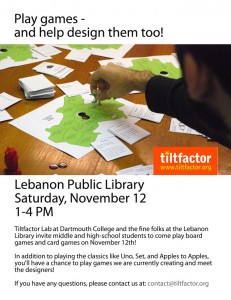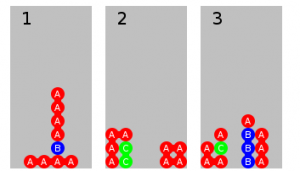IndieCade Exhibit to Showcase Tiltfactor Laboratory’s ZOMBIEPOX at 2012 Electronic Entertainment Expo
FOR IMMEDIATE RELEASE
Contact:
cont…@tiltfactor.org
603.646.1007
Tiltfactor Laboratory is pleased to announce that ZOMBIEPOX™ has been selected for the IndieCade showcase at the 2012 annual Electronic Entertainment Expo (E3) trade show at the Los Angeles Convention Center from June 5th to June 7th. E3 is presented by the Entertainment Software Association (ESA) and is the world’s premier trade show for video game and related industries, with last year’s attendance peaking at 46,800.
http://www.e3expo.com/











